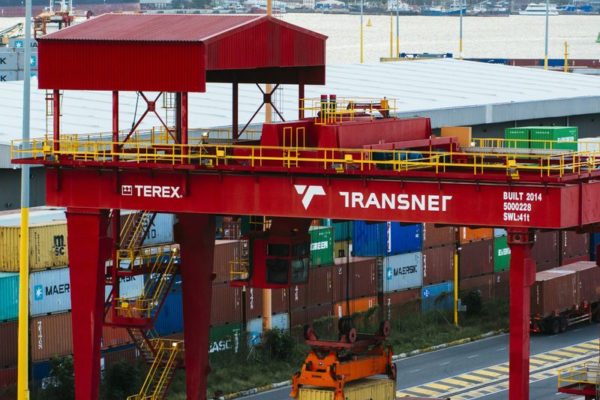South Africa remains confident that the implementation of the Freight Logistics Roadmap will enable investment in South Africa’s ports and rail systems, said President Cyril Ramaphosa.
The President was speaking during a question and answer session in the National Assembly (NA) on Thursday.
“We are confident that throug efforts and by implementing the Freight Logistics Roadmap, we will enable massive new investment in our ports and rail system. This will unlock economic growth and create jobs.”
The President said an “an efficient and well-functioning logistics system” is critical for the growth of South Africa’s economy.
He acknowledged that for many years, the system was underdeveloped and that standards declined.
“That is why we have focused on the logistics sector as part of our broader agenda for economic reform. For many years, our rail system and ports have suffered from underinvestment in infrastructure, equipment and maintenance. This has contributed to deteriorating performance.
“This trend was exacerbated during the state capture period. Funds were diverted away from pressing infrastructure needs. The poor condition of our rail network and the inefficient operation of our port terminals now represent a binding constraint on economic growth and job creation.
“This has implications for key sectors such as mining, agriculture and manufacturing,” he explained.
Collaborative efforts
The President informed the NA that government is now working “urgently to restore our logistics system to world-class standards” by among others, joining hands with the private sector.
This began during the sixth administration through the implementation of Operation Vulindlela which commissioned research that found that there is an appetite for private investment in ports and rail.
Operation Vulindlela is a joint initiative of the Presidency and National Treasury to accelerate the implementation of structural reforms and support economic recovery. It aims to modernise and transform network industries, including electricity, water, transport and digital communications.
At Thursday’s session the President assured the nation that as government and the private sector begin to work together, the state will retain ownership of infrastructure.
“Private sector participation is being introduced in container terminals. This is starting with an equity partnership between Transnet and an international terminal operator for the Durban Pier 2 Container Terminal.
“A dedicated Private Sector Participation Unit has been established by the Department of Transport to identify and develop further opportunities for private investment. These opportunities would be realised through concessions, joint ventures and other models.
“At the same time, we have made it clear that port and rail infrastructure will remain in public ownership, even as competition is introduced in operations,” he said.
In the rail system, a draft statement has been published which seeks to allow private rail operators to “access the network for the first time”.
The full Freight Logistics Roadmap is available for download here: https://www.transport.gov.za/wp-content/uploads/2023/02/Roadmap-for-the-Freight-Logistics-System-in-South-Africa-FINAL-FOR-RELEASE.pdf
Also Read
GCCA issues call to action on food supply chain resilience and boosting trade in Africa
Kenya Airways posts first half-year profit after decade of losses


